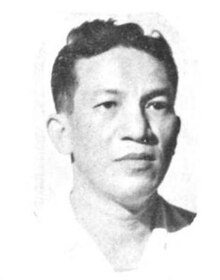Arsenio Lacson | |||||||||||||||||||||||||||||
|---|---|---|---|---|---|---|---|---|---|---|---|---|---|---|---|---|---|---|---|---|---|---|---|---|---|---|---|---|---|
 Lacson official portrait during the 2nd Congress. | |||||||||||||||||||||||||||||
| 15th Mayor of Manila | |||||||||||||||||||||||||||||
| In office January 1, 1952 – April 15, 1962 | |||||||||||||||||||||||||||||
| Vice Mayor | Jesus M. Roces (1952–1959) Antonio J. Villegas (1959–1962) | ||||||||||||||||||||||||||||
| Preceded by | Manuel de la Fuente | ||||||||||||||||||||||||||||
| Succeeded by | Antonio Villegas | ||||||||||||||||||||||||||||
| Member of the House of Representatives from Manila's 2nd district | |||||||||||||||||||||||||||||
| In office December 30, 1949 – January 1, 1952 | |||||||||||||||||||||||||||||
| Preceded by | Hermenegildo Atienza | ||||||||||||||||||||||||||||
| Succeeded by | Joaquin Roces | ||||||||||||||||||||||||||||
| Personal details | |||||||||||||||||||||||||||||
| Born | Arsenio Hilario Sison Lacson December 26, 1912 Talisay, Negros Occidental, Philippine Islands | ||||||||||||||||||||||||||||
| Died | April 15, 1962 (aged 49) Manila, Philippines | ||||||||||||||||||||||||||||
| Political party | Nacionalista | ||||||||||||||||||||||||||||
| Spouse | Luz Santiago | ||||||||||||||||||||||||||||
| Children | 4 | ||||||||||||||||||||||||||||
| Occupation | Journalist, politician | ||||||||||||||||||||||||||||
| Profession | Lawyer | ||||||||||||||||||||||||||||
| |||||||||||||||||||||||||||||
Arsenio Hilario Sison Lacson Sr. (December 26, 1912 – April 15, 1962) was a Filipino lawyer, journalist and politician who gained widespread attention as 1st to be elected and 15th Mayor of Manila from 1952 to 1962. An active executive likened by Time and The New York Times to New York City's Fiorello La Guardia,[1][2] he was the first Manila mayor to be reelected to three terms.[1] Nicknamed "Arsenic" and described as "a good man with a bad mouth",[3] Lacson's fiery temperament became a trademark of his political and broadcasting career. He died suddenly from a stroke amidst talk that he was planning to run in the 1965 presidential election.[4]
- ^ a b "Fiorello in Manila". Time. April 16, 1962. Archived from the original on December 3, 2007. Retrieved February 2, 2008.
- ^ "Arsenio S. Lacson of Manila Dead". The New York Times. April 16, 1962. Retrieved February 2, 2008.
The death of Mr. Lacson, who was an active and pugnacious city executive in the tradition of Fiorello La Guardia, marked the end of an era.
- ^ Hancock, Rose (April 2000). "April Was a Cruel Month for the Greatest Manila Mayor Ever Had". 1898: The Shaping of Philippine History. 35. Vol. II. Manila: Asia Pacific Communications Network, Inc. p. 16.
- ^ "Arsenio Lacson of Manila Dead (pay site)". The New York Times. April 16, 1962. Retrieved February 2, 2008.
Mr. Lacson had returned to the Nacionalista party, now in opposition, and was considered likely to be its Presidential candidate in 1965